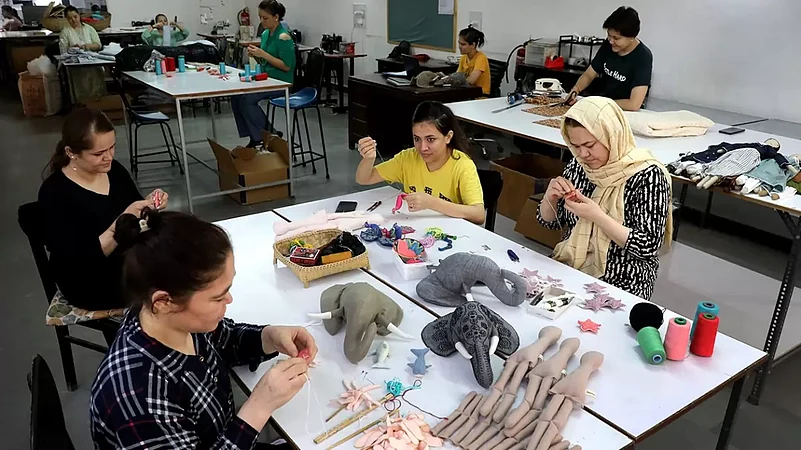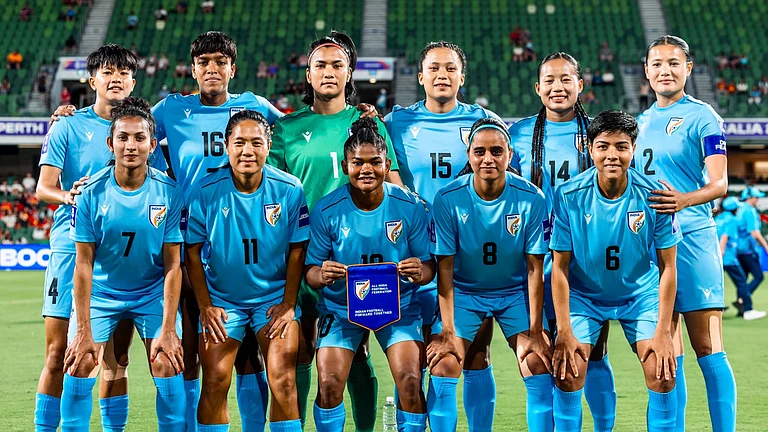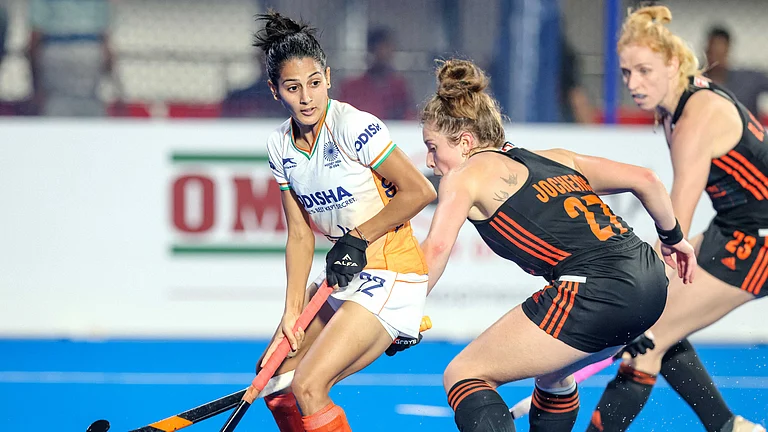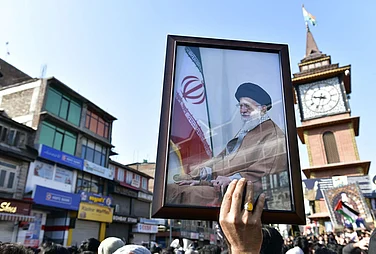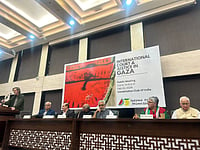Last week, security officials associated with the Taliban shot fire in the air and used firehoses in Kabul to alert hundreds of women to shut down their parlours. The women were protesting against an order, issued by the Talibs last month, forcing the closure of thousands of parlours run by women. For women in Afghanistan, parlours have acted as a tool for financial liberation.
Parlours as a space were just not a way of finding economic stability, but they provided women with a space for socialisation. Since the Taliban seized power in 2021, women and young girls have been barred from going to schools and universities, hanging out in parks, funfairs, and gyms, and ordered to cover up in public. “When the Taliban came to power, one of the first things they did, to curb women's empowerment, was to visit every parlour and tear down the banners that showed women,” says Adiba Qayoumi, a 23-year-old refugee woman currently staying in Delhi.
Noting that the world is not on track to achieve gender equality by 2030, a new UN report flagged that movements against gender equality have gained traction and women's rights have been rolled back in many parts of the world.
The war and increasing gender violence in Afghanistan have also had a disproportionate effect on women who have been compelled to flee the country and search for ‘homes’ elsewhere. But their journey and struggle to find a safe home elsewhere has been intersectional and much more complicated than what meets the eye. And being Muslim women and a refugee, the effect of the refugee crisis on them could be gauged from the accounts of young women and single mothers who are struggling to feed and educate their children for a better future.
As per UNHCR, 46 per cent of the refugees are women and young girls whereas 36 per cent of them are children. “My rights as a human and a woman seem to have been affected more because of my refugee status. I don’t have the right to represent myself in the space I am today. I wish I had, then maybe I would be living my life like you,” says Adiba, who currently works at a diagnostic centre in Bhogal. After fleeing her country in 2019, she found a safe space. But safety doesn’t feed you. “In Afghanistan, education is banned for women. In India, education is not banned but it is an impossible right for us, refugees, because we are homeless,” says Adiba.
Nageena Nazreen, 40, another Afghan resident of Bhogal who arrived in India in 2018, worked as a nurse in Jalalabad. There, the challenges of her life as a woman and a mother of two were often accentuated by a husband who was a drug addict. Life took a rough turn for Nazreen as she was compelled to divorce her husband to have a stable life. Meanwhile, she also lost one daughter to a war-like situation. To seek a safer life, she came to Delhi as a single mother and became a victim of sexual slurs in the lanes and alleys of Bhogal.
“Initially when I came here with just my daughter and would go around looking for houses and work, there would be men who would make unsolicited remarks. They would often approach me in a disrespectful way,” she breaks down recalling the difficult days she had to fight. Despite being skilled in the health sector, Nazreen struggles to find a job and lives her life on borrowed money. She believes that when an Afghan woman has no ‘man to protect her, financially’, her social status, economic support, and emotional moorings become deranged.
Similar feelings of being a single mother are reiterated by Farida Khaekwan, 46, a mother to four children. She has been a single mother for over a decade and her journey from Kabul to Delhi was fraught with similar experiences besides the stress of poverty and displacement. Farida, who lost her parents at a very young age, had her first nikah at the age of 18. Back then, she did not know that her husband was suffering from a brain disease. After her fourth child was born, her husband passed away. She went back to leave with her brother.
“But you know what happens when a widow, with four children, starts staying with her maternal family. Society does not seem to forgive her for her existence,” says Farida. To protect herself from all the whispers and seek economic protection, Farida remarried and this time to a man, much older to her. When she was in Kabul, he would fly down from Sweden to visit them once a year. But ever since the family moved to Delhi in 2016, her husband has not come to see them.
Settled in Sweden with Swedish citizenship, her husband has been providing financial support to Farida and her children. However, he is close to 90 and owing to his health issues, he can no longer fend for them. Moreso, he has now sent divorce papers to Farida. “We don’t know how will we pull off our financial needs once the money stops flowing in,” says Farida, who currently makes crochet handicrafts and sells them to provide for her family.
Although she found work in 2021, it was only for a brief stint. Along with 7-8 women, she undertakes weaving work to build up the required community support. “Life is quite uncertain for us here and today, we do not know what happens to us tomorrow,” says Nazreen, for whom, in Afghanistan, death was a matter of a single blow whereas here, it becomes a slow process gobbling them up day by day.
But for Adiba, whose mother has been a civil activist and women’s rights advocate in Afghanistan, dying in India out of homelessness is a better choice to make than dying at the hands of the ‘animals, they call the Taliban’. “I refuse to be punished for my existence as a woman,” she says.


